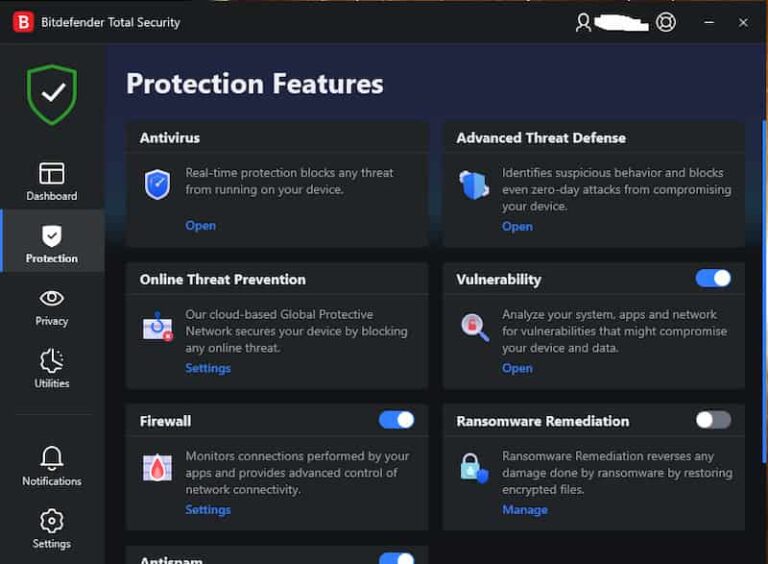It’s vital to secure internal communication. It protects sensitive data, ensures compliance, and maintains operations. Secure internal communication is a cornerstone of any organization’s cybersecurity strategy.
With the rise of remote work, companies rely on digital tools to collaborate and share information. They are key to growing their business. However, this increased reliance on digital communication also introduces significant security risks. This blog post will explore the need for secure internal communication.
What is Secure Internal Communication?
Secure Internal Communication means keeping info within an organization safe. It refers to practices, tools, and strategies. They ensure the info is confidential, accurate, and protected from unauthorized access or breaches. This idea is key to privacy. It protects sensitive data. It ensures only intended recipients can access internal communications.
Why is Secure Internal Communication Important?
Secure internal communication is not just a technical requirement but a strategic advantage. It helps protect sensitive information, ensures compliance with regulations, and fosters a culture of trust and accountability. Companies can reduce risks and boost productivity by prioritizing secure communication. This will help them stay competitive.
Problem
The modern workplace is highly interconnected, with employees sharing sensitive information across various channels. This interconnectedness, while beneficial for productivity, also opens up many vulnerabilities. Data breaches, unauthorized access, and cyber-attacks can lead to significant financial losses, reputational damage, and legal repercussions.
Agitate
Imagine a scenario where confidential business strategies, financial data, or personal employee information are leaked. The fallout can be catastrophic. It may cause loss of client trust, a competitive disadvantage, and regulatory penalties. The stakes are high, and the need for secure internal communication cannot be overstated.
Solution
Strong security measures can protect sensitive data. They ensure compliance with regulations and maintain operations. Secure internal communication is the backbone of a resilient and trustworthy business environment.
Five Effective Strategies for Secure Internal Communication
-
Encryption: Encrypting all internal communications ensures that, even if data is intercepted, it cannot be read without the decryption key. This is a fundamental step in protecting sensitive information from unauthorized access.
-
Multi-Factor Authentication (MFA): MFA adds an extra layer of security by requiring multiple forms of verification before granting access to internal systems. This effectively reduces the threat of unauthorized entry.
-
Regular Training: Educating employees about the latest cybersecurity threats and safe practices is crucial. Regular training sessions empower employees to recognize and report phishing attempts. It can also reduce risky behaviors and improve compliance with security protocols.
-
Access Controls: Implementing strict access controls ensures that only allowed personnel can access sensitive information. RBAC can limit access based on an employee’s role and duties.
-
Monitoring and Auditing: Continuous monitoring and auditing of internal communications can help detect and respond to suspicious activities promptly. This forward-thinking approach helps to expect and neutralize potential security threats.
Challenges and Threats in Internal Communication Security
-
Human Error: Employee mistakes, such as misaddressed emails or mis-configured access controls, can lead to data breaches.
-
Phishing Attacks: Phishing attacks can compromise employee accounts and gain access to sensitive information.
-
Malware and Ransomware: Malware and ransomware attacks can compromise company data and disrupt business operations.
Essential Technological Features for Ensuring Secure Internal Communications
To safeguard internal communications, certain technological features are essential:
-
End-to-End Encryption: Ensures that only the intended recipients can read the messages and files.
-
Access Controls: Allows administrators to define who can access specific information and communication channels.
-
Data Loss Prevention (DLP): Monitors and controls the movement of sensitive data to prevent unauthorized sharing or leakage.
-
Audit Trails: Provides a record of all communication activities, enabling organizations to track access and detect anomalies.
How to Select a Secure Internal Communications Platform?
When choosing a secure internal communications platform, consider the following factors:
-
Security Features: Ensure the platform offers robust security features like encryption, MFA, and access controls.
-
Compliance: Verify that the platform meets industry-specific compliance requirements.
-
Scalability: The platform should be able to accommodate your organization’s growth and changing needs.
-
Ease of Use: A user-friendly interface can improve adoption and reduce the risk of errors.
-
Vendor Reputation: Choose a reputable vendor with a proven track record in security.
The Advantages of Safeguarding Internal Communications
Securing internal communications offers several benefits:
-
Protection of Sensitive Information: Safeguards confidential data from unauthorized access and cyber threats.
-
Enhanced Compliance: Helps meet regulatory requirements and avoid legal penalties.
-
Increased Employee Confidence: Employees are more likely to trust and engage with communication tools that they believe are secure.
-
Reduced Risk of Data Breaches: Minimizes the likelihood of costly and damaging data breaches.
How to Secure Internal Communication to Prevent Leaks
To prevent leaks:
-
Secure Sensitive Information: Implement access controls that grant permissions based on user roles, responsibilities, and least privilege.
-
Regularly Review and Update Security Policies: Ensure that policies are up-to-date and reflect current threats and best practices.
-
Use Encryption for Data in Transit and at Rest: Protect data from unauthorized access, both while being transmitted and when stored.
-
Conduct Regular Security Audits: Identify and address potential vulnerabilities before they can be exploited.
Best Practices for Protecting Sensitive Data
-
Adopt a Least-Privilege Approach: Grant employees the minimum level of access necessary to perform their jobs.
-
Encrypt Sensitive Data: Use strong encryption methods to protect data both in transit and at rest.
-
Regularly Back Up Data: Ensure that backups are performed regularly and stored securely to mitigate the impact of data loss or corruption.
-
Monitor and Respond to Security Incidents: Implement robust monitoring systems and have an incident response plan in place to quickly address potential security breaches.
Intranet On-Premise or Cloud? Which is Safer?
Both on-premise and cloud-based intranets have their advantages and disadvantages:
-
On-Premise Intranet: Provides greater control over security but requires significant investment in infrastructure and ongoing maintenance.
-
Cloud-Based Intranet: Offers scalability and flexibility, often with built-in security features, but relies on the security practices of the cloud provider.
Ultimately, the choice depends on your organization’s specific needs, resources, and risk tolerance.
Select a Trusted Internal Communication Platform with Industry-Recognized Security Certifications
When choosing an internal communication platform, seek ones with security certifications, such as:
-
ISO/IEC 27001: Internationally Recognized Best Practices for Managing Information Security Risks
-
SOC 2: A framework for managing and protecting customer data.
-
GDPR Compliance: Confirms that the platform meets the GDPR requirements.
These certifications state the platform adheres to rigorous security standards and practices.
Conclusion
Secure internal communication is vital. It protects data, ensures compliance, and builds trust. By using effective strategies, organizations can boost their communication security. They must also address common challenges and choose the right tech features and platforms. These measures protect sensitive information. They also support business integrity and resilience against evolving cyber threats.
FAQS
What do you mean by secure communication?
Method of exchanging information between two parties in a way that prevents unauthorized access or interception by third parties.
What is SIC in networking?
SIC in networking stands for Secure Internal Communication.
What is SIC and its port number?
18209 and 18210
What are the four types of internal communication?
Downward communication, Upward communication, Horizontal communication, Diagonal communication
How to Check checkpoint model from CLI
use this command: dmidecode | grep "Product Name"




